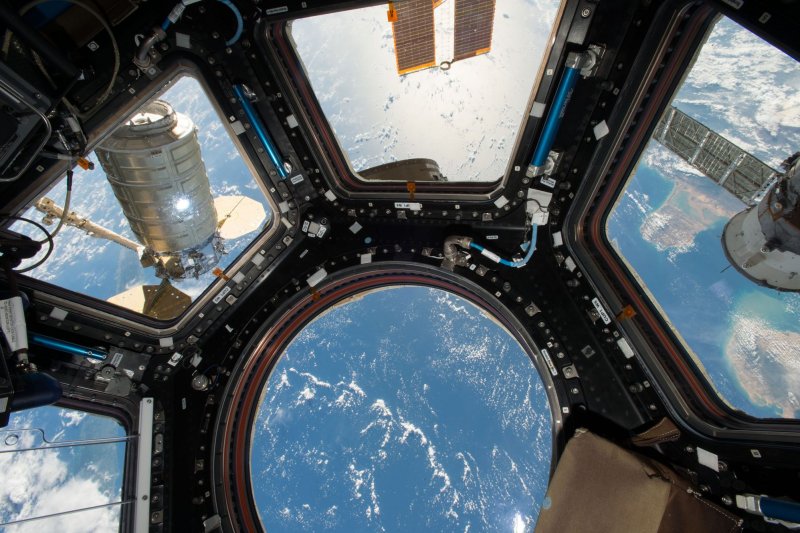Researchers found pathogenic fungus isolates grown inside the space station behaved the same as isolates grown in a lab at the University of Wisconsin. Photo by NASA/UPI |
License Photo
MADISON, Wis., Oct. 26 (UPI) -- As scientists continue to prepare for travel to deep space, they're covering all the bases, assessing all the risks -- like the risk of microbial exposure in close quarters.
For this and other scientific reasons, researchers have been growing pathogens in space. Their most recent experiment involved Aspergillus fumigatus, the most common cause of invasive fungal infection in humans.
It turns out, this opportunistic fungus doesn't act all that differently in space as it does back on Earth.
Fungal isolates spent several months on the International Space Station (ISS). Their growth and behavior were contrasted with that of isolates back inside a lab at the University of Wisconsin.
The space-based isolates developed on unusual genetic mutations and exhibited the same in vitro growth and chemical stress tolerance measured in stateside isolates.
When a vertebrate model was exposed to the fungus, the ISS isolates proved a bit more lethal, but researchers don't believe the isolates' added potency was a result of their time spent aboard the space station.
"While we observed virulence differences, we speculate that it is completely within the variation that one would observe with terrestrial isolates," Benjamin Knox, a microbiology graduate student at Wisconsin, said in a news release. "There is an emerging body of literature showing a terrific phenotypic variation in A. fumigatus."
Though these findings -- detailed in the journal mSphere -- suggest space is not a boon to A. fumigatus, the mold pathogen remains a threat to astronaut health, one that must be accounted for.
"For people wanting to draft policy, either sampling or cleaning regimes aboard these space vessels, the study shows that if a fungus is identified as A. fumigatus, any and all isolates represent potential pathogens and should be treated as such," Knox said.















